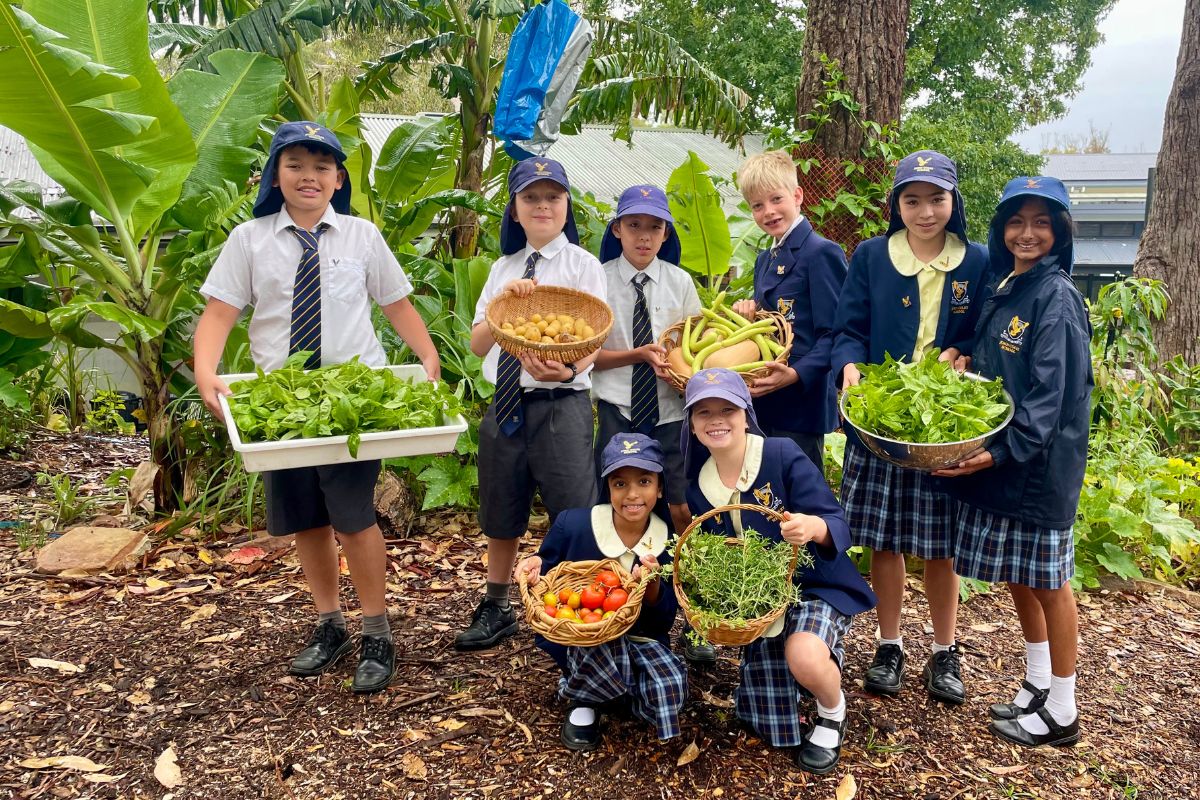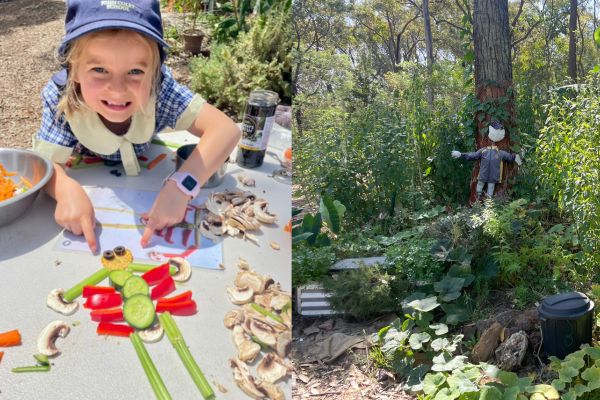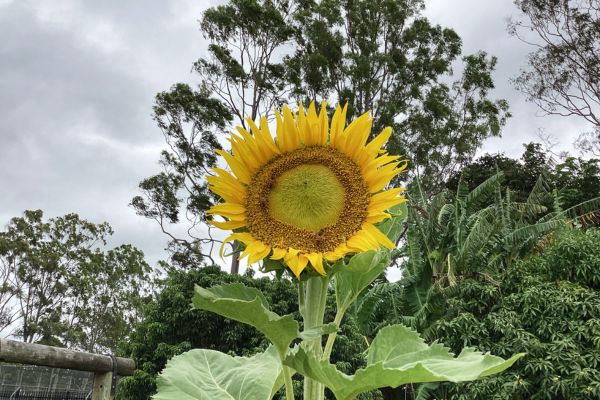Winners! National Kitchen Garden Awards 2025

- The nine winners of the National Kitchen Garden Awards 2025 have been revealed.
- The award-winning schools and early childhood services showcased creativity, community connection, sustainability, innovation and inclusivity.
- Winners will receive prize packs valued over $4,000, including a Kitchen Garden Program membership, a cash grant, and garden and kitchen supplies.
After reviewing nearly 500 entries from across Australia, we are delighted to announce the nine winners of the National Kitchen Garden Awards 2025.
Our expert judges, Stephanie Alexander AO, Clarence Slockee, Thanh 'Fruit Nerd' Truong and Alice Zaslavsky, faced the tough task of selecting the winners among the 27 finalists. "Another fantastic year full of engagement and creativity. The finalists were all amazing which made choosing difficult as all were winners," says Thanh.
The winners were revealed at a Kitchen Garden Month celebration at Kilkenny Primary School, South Australia, on 16 September.
Each winning school will receive a prize pack valued at over $4,000, including a two-year membership to the Kitchen Garden Program, and kitchen and garden supplies.
Join us in celebrating these incredible initiatives as we share the highlights and the impact of each kitchen garden.
Beyond the School Gate
Presented by Novo Nordisk Cities for Better Health
Winner: Fairview Kindergarten, SA

From veggie patch to community cart
Fairview Kindergarten has transformed its garden into a hub of community connection. With support from the local Men’s Shed, the children co-designed a vibrant Grow Free Cart, paired with a Little Library and Pantry, to share fresh produce, books and pantry items with their community. Each week, children tend their veggie patch and contribute their harvest, sparking conversations about kindness, health and sustainability. The initiative has inspired neighbours to give back too, with one elderly resident donating over 400 lemons and mandarins.
Down to Earth
Presented by ABC Organic Gardener Magazine
Winner: John Colet School, NSW

Cultivating a circular food system in the city
At John Colet School, a thriving permaculture garden is demonstrating the power of a circular food system in an urban setting. Each week, 100 children learn about growing on the land of the Garigal people, while helping to preserve the native ecosystem, including the endangered Grevillea Cayleii. The garden directly supports the school kitchen, where 300 people share daily meals, producing 164 kilograms of food and composting more than two tonnes of waste in its first year alone. Once a site dominated by invasive plants and poor sandy soil, it has been transformed through mulching and composting. (Also featured in our header photo.)
First Nations Foods
Presented by Indigiearth
Winner: West Coast Steiner School, WA

Learning with the seasons on Noongar Country
At West Coast Steiner School, students are reconnecting with the rhythms of Noongar Country through their renewed bush tucker garden. The garden flourishes with native plants such as Kakadu plum, finger lime, Warrigal greens and finger lime, offering children a living classroom rich in flavour and cultural knowledge. Following the Noongar six-season calendar, students observe nature’s signals to guide planting and harvesting, while hands-on activities like brewing lemon myrtle tea, baking saltbush damper and tasting bush basil foster a deep sensory connection to food and land. Through stories, songs and yarning circles, the project celebrates First Nations wisdom and cultivates respect for Country.
Flower Power
Presented by ABC Gardening Australia Magazine
Winner: Bundaberg Special School, QLD

Growing flowers for learning and connection
At Bundaberg Special School, the kitchen garden has been a thriving part of school life for more than a decade. Students grow flowers alongside herbs and vegetables, encouraging pollinators through both a native beehive and flowering plants that provide seeds for future planting. Every element of the garden is edible or non-toxic to support the diverse sensory needs of students, who use the space daily for hands-on learning and wellbeing. Picking small posies of flowers helps students manage transitions and ease anxiety at the end of the school day, while seasonal blooms are also shared with teachers and families as gifts of gratitude and care.
Recipe of the Imagination
Presented by General Mills
Winner: East Devonport Primary School, TAS

From excess silver beet to whole-school feast
At East Devonport Primary School, an abundant silverbeet harvest inspired a school-wide cooking project that brought every class into the kitchen. Students prepared a hearty burger mix (made from fresh silverbeet, homemade breadcrumbs, eggs, cheese and vegetable stock paste) to make 200 cheesy beet burgers, feeding the entire school. Each burger was paired with garden slaw and tomato relish, with gluten-free and dairy-free versions carefully adapted. When the silverbeet kept coming, the recipe was transformed into cheesy beetballs with Napoli sauce, showing creativity and flexibility in the kitchen.
Sustainable Solutions
Presented by Costa Group
Winner: YMCA Children's Centre (Gungahlin), ACT

Closing the loop with creativity and care
At YMCA Children’s Centre (Gungahlin), sustainability is embedded in daily learning through creative reuse and hands-on experiences. Educators have established a dedicated “Reduce, Reuse, Recycle” space, and children are actively involved in composting food scraps, which enrich the veggie garden. A highlight of the program has been welcoming four chickens from the ACT Hatching Program, with their new coop ingeniously built from recycled materials, including an old cot. That same cot was also repurposed into raised garden beds, where children helped plant new seedlings.
The Art of Kitchen Gardening
Presented by MSP Compass
Winner: Lucknow Kindergarten, VIC

Scarecrows bringing colour to the garden
At Lucknow Kindergarten, children responded to hungry birds in their sunflower patch by designing and building their own scarecrows. Every element of the creations was recycled, making sustainability part of the project. The children collaborated to bring two vibrant characters (Frankie and Timmy) to life, proudly watching them from their classroom window and checking on them during garden visits. The project not only protected the sunflowers but also added colour and fun to the outdoor space, sparking further creativity as children extended the theme through watercolour scarecrow artworks.
Water Wise Design
Presented by WaterUps
Winner: Stanmore Public School, NSW

Innovative aquaponics in action
At Stanmore Public School, the kitchen garden demonstrates sustainable water practices through clever design and student-led innovation. All water used in the kitchen garden comes from rainwater tanks, with garden beds fully irrigated with timed sprinklers, and two frog habitats with solar powered pumps. Parents and students collaborated to build an aquaponics system using recycled materials, including old bathtubs and a discarded table frame. The system circulates water with a solar-powered pump and battery, supporting native fish, edible water plants, lettuces grown in expanded clay balls, and herbs.
Wellbeing Champions
Presented by the Stephanie Alexander Kitchen Garden Foundation
Winner: Woodbridge Primary School, WA

Grub club: growing wellbeing through the garden
At Woodbridge Primary School, the kitchen garden has become a space for nurturing the whole child, particularly those needing extra support. Observing that some students struggled during breaks, educators created Grub Club, a lunchtime cooking program using fresh produce from the school garden. Open to students of all ages, Grub Club provides a safe, inclusive environment where children grow, harvest, follow recipes, and prepare healthy snacks. Beyond teaching cooking skills, the program builds confidence, social connection, and a sense of belonging.
To learn about the benefits of the Kitchen Garden Program in your school or early childhood service, contact our Support Team, available five days a week on 1300 072 543 or membership@kitchengardenfoundation.org.au.
For media queries, contact Audrey Bourget, communications lead, audrey.bourget@kitchengardenfoundation.org.au
With thanks to our award category partners

With thanks to our prize partners

< Back to Latest News
